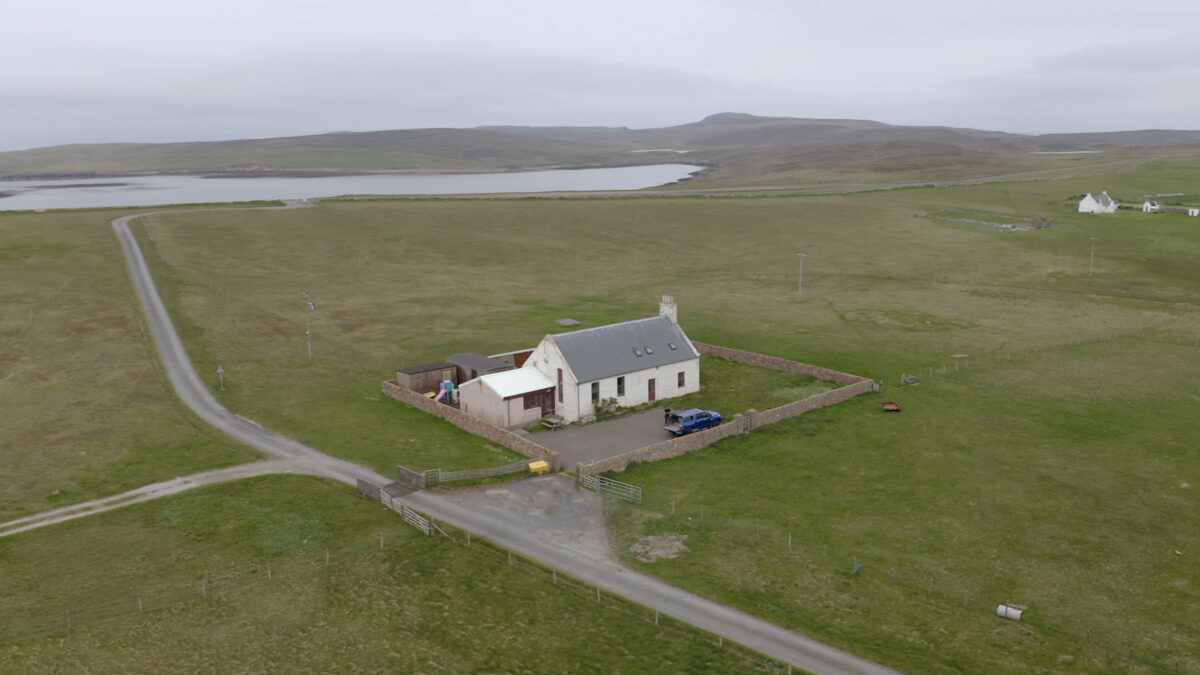A remote Scottish island with only seven permanent residents will get ‘lightning-fast’ internet speeds from tomorrow after properties were connected to satellite broadband.
The tiny island of Papa Stour, off the west coast of the Shetlands, will say goodbye to cellular data and dial-up web speeds at home thanks to a UK Government-backed trial scheme.
The ‘Very Hard to Reach Premises’ programme, which aims to connect the UK’s most remote homes and businesses, will allow residents to enjoy multiple video calls, streaming in HD and “other high capacity uses”.
Papa Stour resident Andy Holt said: “In our connected age it’s gratifying to feel we are not forgotten. This will be of benefit for both residents and tourists in the years to come.”
The switch-on by Clarus Networks Group uses OneWeb’s low earth orbit (LEO) satellites to deliver a high-speed, low latency internet connection. Residents can now connect to a broadband network at the island’s primary school building and use high speed WiFi on the island for the first time.
At its peak in the 19th century, Papa Stour’s population was around 380 people, supported by a strong fishing sector. However, the population has dwindled since and the island is now a permanent home to seven people.
There are no children currently living on the island, but it is hoped the fast connection will allow the school building to act as a connection hub for the islanders.
Edinburgh-based Clarus Networks Group, experienced with using satellite and 5G technology to bring internet connection to remote regions, is the connectivity and network specialist behind the deployment.
Clarus is working with the Department for Science, Innovation and Technology (DSIT) on the Papa Stour trial, using OneWeb’s network to deliver high speed connection via a constellation of hundreds of LEO satellites.
The switch-on also marks Europe’s first commercial deployment of a new satellite comms panel, the Kymeta Hawk u8 terminal, which is flat and compact compared to previous domed antennas. This state-of-the-art panel provides the connection between earth and the satellites.
Liz Peterson, councillor for Shetland West, said: “We welcome this investment in a satellite broadband trial for Papa Stour, where residents have been disadvantaged for many years due to the lack of a broadband network on the island.
“This hopefully paves the way for further investment in better broadband services for other rural parts of Shetland. We want our smaller communities to thrive and good broadband is a part of modern life to help maintain populations and to attract more people to live, work and invest in Shetland.”
Last year, Shetland residents lost all telephone and internet services for a period of time when subsea cables were damaged. The Alpha Trials aim to show how low orbit satellites could be a solution when island locations and rugged scenery make cable installation and maintenance challenging.
The Government recently announced a £7m fund to test new ways to bring together satellite, wireless and fixed line internet connectivity, helping to support remote businesses.
Paul Coffey, chief technology officer at The Clarus Networks Group, said: “Clarus has a proven track record of delivering connectivity to remote areas, and the network switch on at Papa Stour is a key milestone.
“Working with the Government and Shetland Islands Council, this trial shows how satellite technology can be transformational, connecting families and businesses to new opportunities. We hope to work with the local council and Government to use satellite technology to connect even more rural areas and find ways to bring fast connection into all island homes.”




